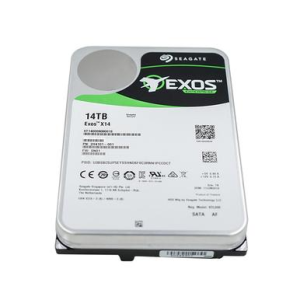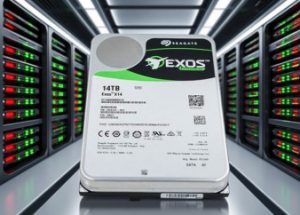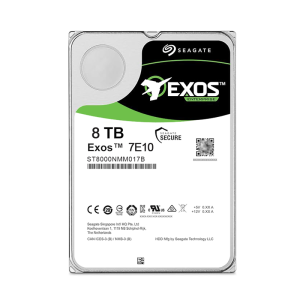In the ever-evolving world of enterprise storage solutions, understanding the nuances between different hard drive models is crucial for making informed purchasing decisions. Today, we’ll delve into the specifics of Seagate’s Exos Standard and Seagate lyve Drive, examining their differences and how they cater to various business needs. Let’s explore what sets these two drives apart and why they might be the right choice for your storage requirements.
1. Understanding Seagate Exos Standard
The Seagate Exos Standard is a robust and high-capacity hard drive designed for enterprise-level data centers. It is engineered to deliver exceptional performance, reliability, and scalability. Here are some key features of the Seagate Exos Standard:
- High storage capacity, ideal for large-scale data centers.
- Advanced error correction and data integrity features.
- Energy-efficient design, reducing operational costs.
- Supports various enterprise applications, including bulk data storage and cloud computing.
2. Exploring Seagate lyve Drive
The Seagate lyve Drive, on the other hand, is a cloud-connected hard drive designed for simplified data management and accessibility. It offers a unique approach to data storage, focusing on ease of use and seamless integration with cloud services. Here are some notable features of the Seagate lyve Drive:
- Direct cloud connectivity, eliminating the need for complex infrastructure.
- Easy-to-use interface for simplified data management.
- Secure and reliable storage solution for remote and on-premises environments.
- Optimized for data-intensive applications and content creation.
3. Key Differences Between Seagate Exos Standard and Seagate lyve Drive
Now that we’ve highlighted the features of both drives, let’s examine the key differences between them:
- Target Market: The Seagate Exos Standard is tailored for enterprise data centers and large-scale storage requirements, while the Seagate lyve Drive is designed for users who need easy and direct access to their data through cloud connectivity.
- Capacity: The Exos Standard offers higher storage capacities, making it suitable for bulk data storage needs, whereas the lyve Drive provides a more balanced capacity suitable for individual and small business use.
- Connectivity: The Exos Standard relies on traditional storage infrastructure, while the lyve Drive connects directly to the cloud, offering a more flexible and accessible storage solution.
- Performance: The Exos Standard excels in high-performance environments, while the lyve Drive is optimized for data-intensive applications that require quick and easy access.
4. Choosing the Right Storage Solution for Your Business
When selecting between the Seagate Exos Standard and Seagate lyve Drive, consider the following factors:
- Your specific storage requirements and capacity needs.
- The complexity of your existing IT infrastructure.
- Your need for direct cloud connectivity and simplified data management.
- Your budget and the long-term cost of ownership.
In conclusion, both the Seagate Exos Standard and Seagate lyve Drive offer unique advantages tailored to different business needs. Choosing the right drive depends on your specific storage requirements and the nature of your operations.
When it comes to purchasing these drives, HUAYI INTERNATIONAL LIMITED stands out as a trusted Seagate enterprise hard drive distributor. We offer the following advantages:
- Direct access to Seagate’s enterprise-level hard drives.
- Secure transactions and a stable supply chain.
- 3-year warranty and reliable after-sales support.
- Competitive pricing and bulk purchase options.
Contact us today to find out how we can assist your business in selecting the right storage solutions.




